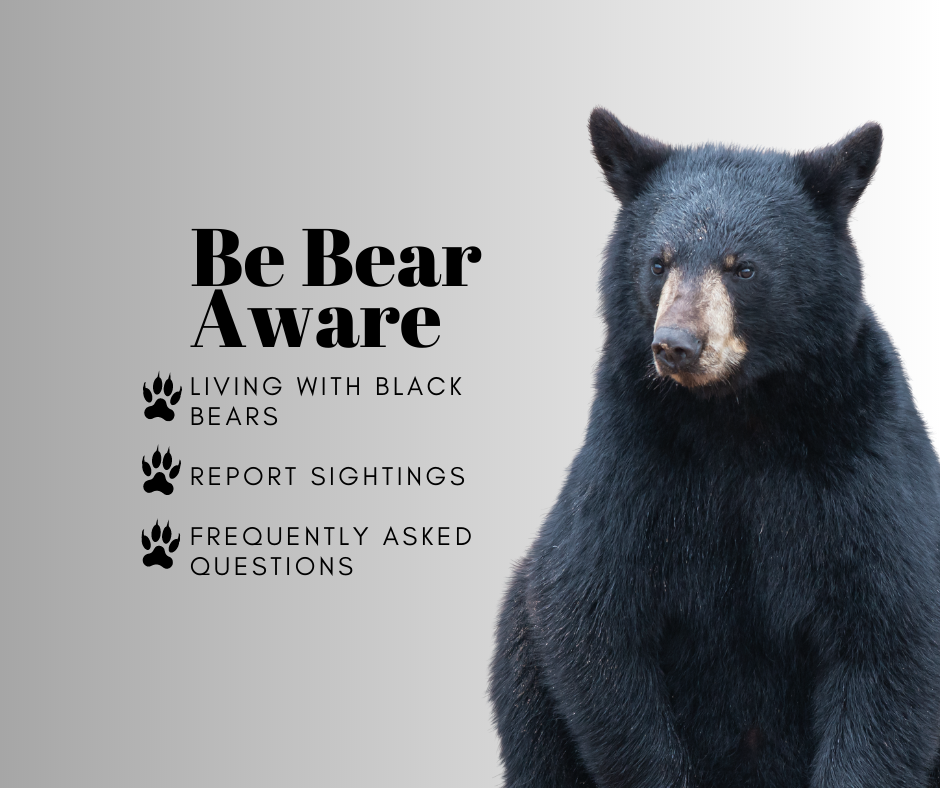Be Bear Aware!

Posted on April 11, 2023
Bear sightings are becoming more frequent throughout Connecticut, especially throughout the 76th District. As the weather continues to warm up, bear encounters will become more likely. I want to share the Department of Energy and Environmental Protection (DEEP) information about how to be bear aware.
>>REPORT SIGHTINGS<<
Make Your Place a No-Bear-Food-Zone
According to DEEP, the most important step to bear-proofing your property is to remove food attractants, such as bird seed and unsecured garbage:
- Never feed bears.
- Take down, clean, and put away bird feeders by late March, or even earlier during mild weather. Store the feeders until late fall and clean up spilled seed from the ground. Store any unused bird seed and suet in a location not accessible to bears, such as a closed garage. Do not store bird seed in screened porches or sheds where bears will be able to rip screens or break through windows to access the seed.
- Store garbage in secure, airtight containers inside a garage or other enclosed storage area. Adding ammonia to trash cans and bags will reduce odors that attract bears. Periodically clean garbage cans with ammonia to reduce residual odor. Put garbage for pickup outside the morning of collection and not the night before.
- Do not store recyclables in a porch or screened sunroom as bears can smell these items and will rip screens to get at them.
- Keep barbecue grills clean. Store grills inside a garage or shed.
- Always supervise dogs when outside. Keep dogs on a short leash when walking and hiking. A roaming dog might be perceived as a threat to a bear or its cubs. (Dogs are required to be on a leash when visiting State Parks, State Forests, and Wildlife Management Areas. Check dog and leash regulations for town properties, land trusts, and other public properties before heading to those areas.)
- Do not leave pet food outdoors or feed pets outside.
- Use electric fencing to protect chickens, other livestock, beehives, agricultural crops, and berry bushes.
- Avoid placing meat scraps or sweet foods, such as fruit and fruit peels, in compost piles.
What to do if you encounter a bear
If you encounter a bear while in your yard or hiking, make your presence known by yelling or making other loud noises. Use a bear whistle to let bears know you are nearby. Never attempt to get closer to a bear. If a bear does not retreat, slowly leave the area. If in your yard, go into your house, garage, or other structure. If the bear persistently approaches, go on the offensive—shout, wave your arms, and throw sticks or rocks. If your dog is hiking with you, it is imperative that you keep the dog on a SHORT leash and DO NOT let it roam free – this is for the safety of your dog, yourself, and the bear. If you are near a bear, DO NOT try to first get a photo or video. Your top priority should be getting a safe distance between yourself and the bear.
###